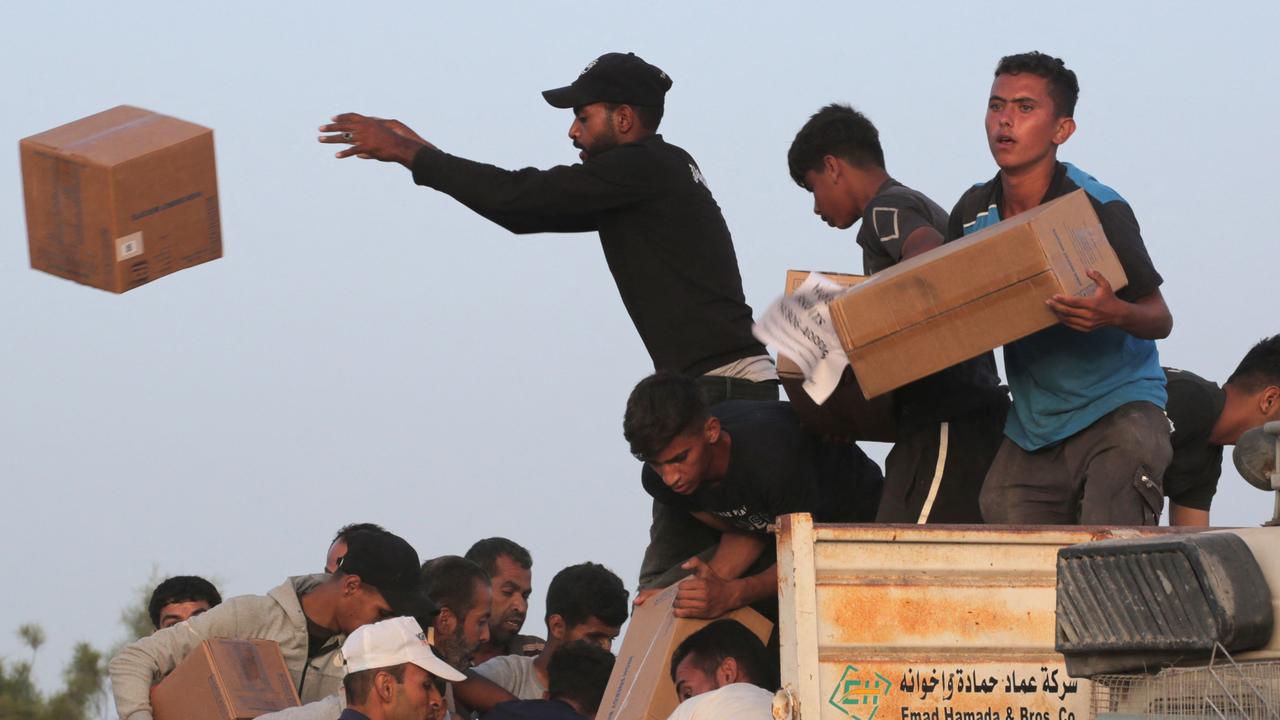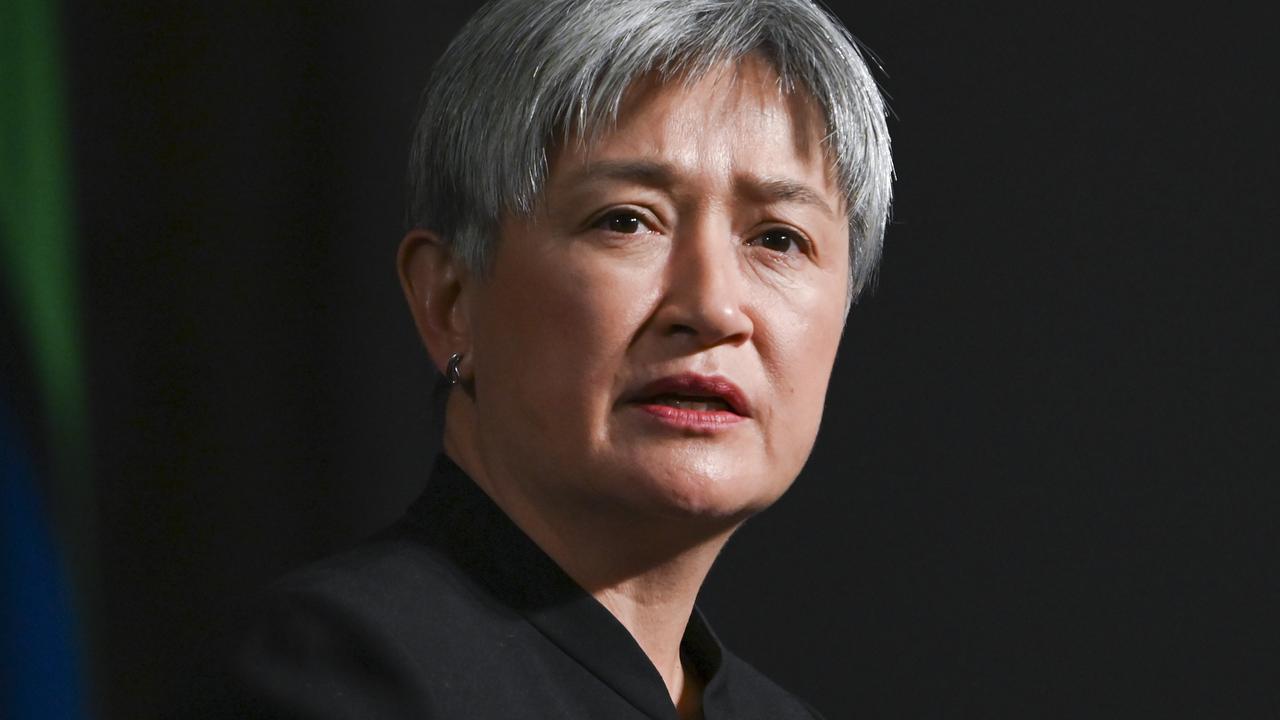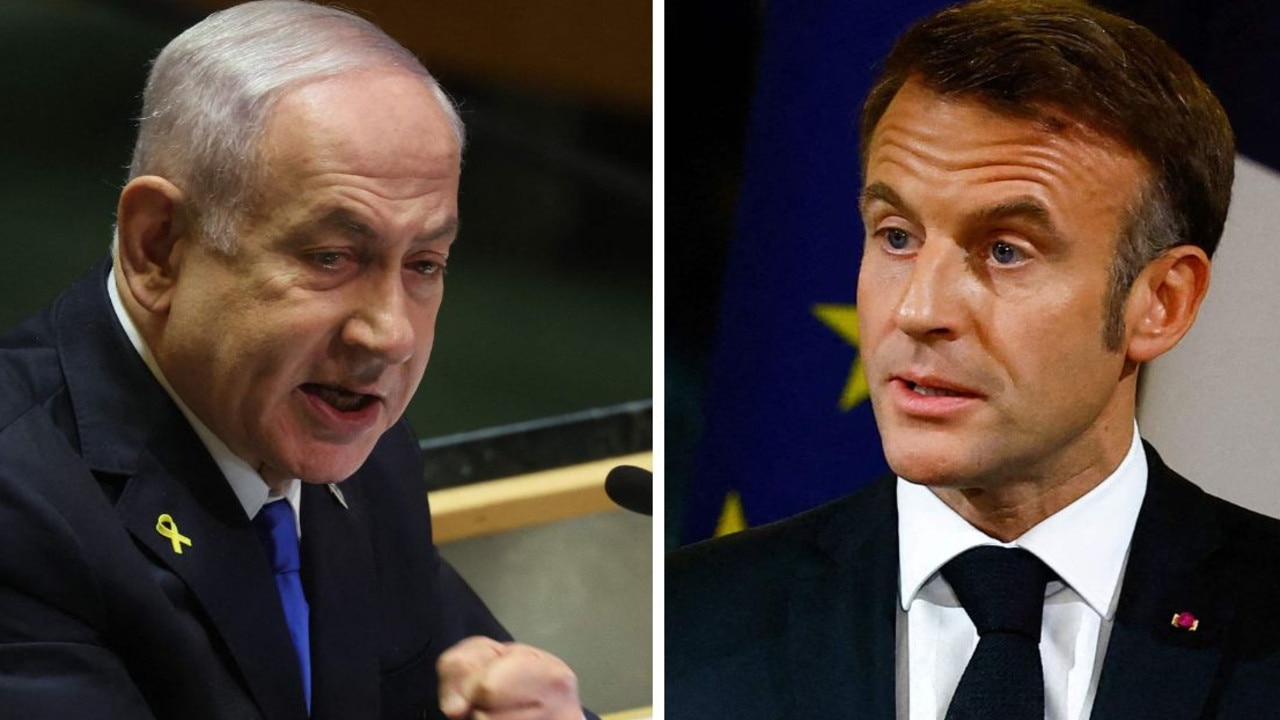‘This is monstrous’: Israeli strike kills children and baby in remote northern Lebanese village
Twenty-three people, including five children and a baby, are reportedly among the dead after a surprise strike caused chaos.
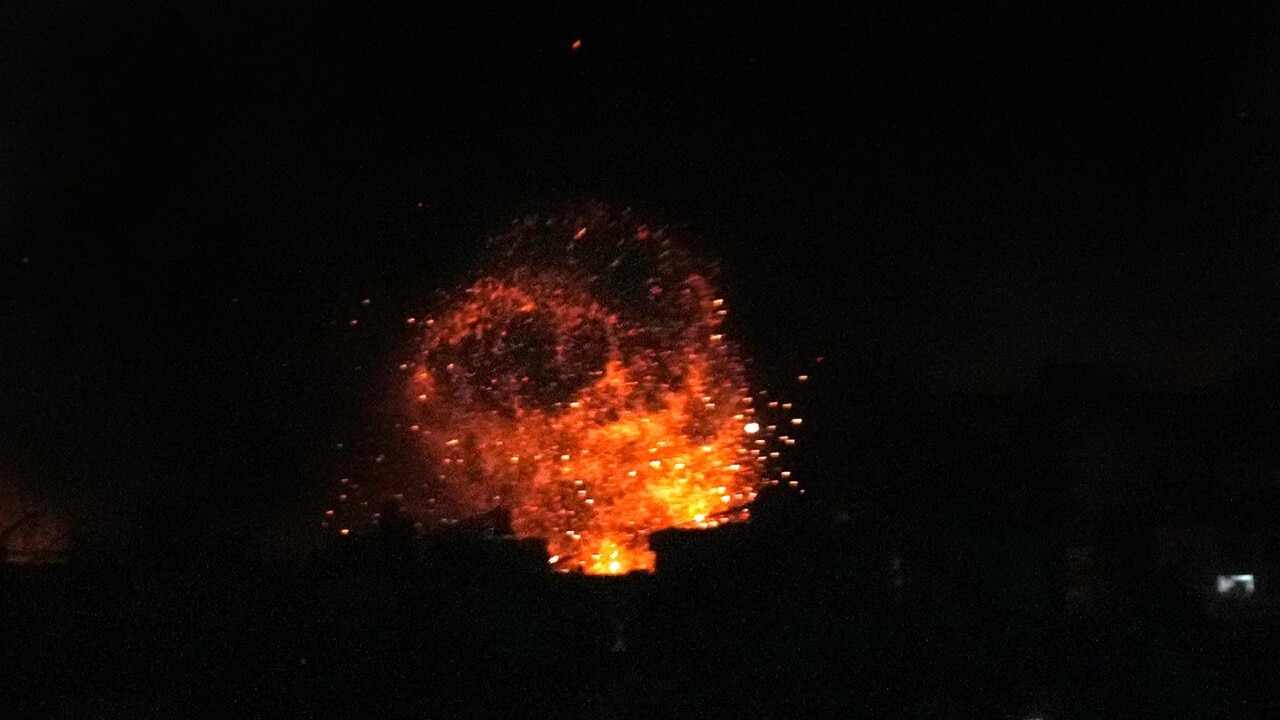
Twenty-three people, including five children and a baby, are reportedly among the dead after a surprise Israeli strike on a village in northern Lebanon.
Aitou, a largely Christian village of about 1100 people, lies far beyond the focus of most violence in the ongoing war. It’s roughly 110 kilometres northeast of the capital, Beirut, whose southern suburbs have been hammered repeatedly.
Its residents would not have expected to be targeted. However, Israel’s effort to kill militants from the terrorist group Hezbollah increasingly knows few bounds, and with many Lebanese people fleeing north, villages like Aitou must now reckon with the threat of bombardment.
The attack on Monday, local time, left at least 23 people dead, according to the local health authorities. Among the six young victims, one was a baby.
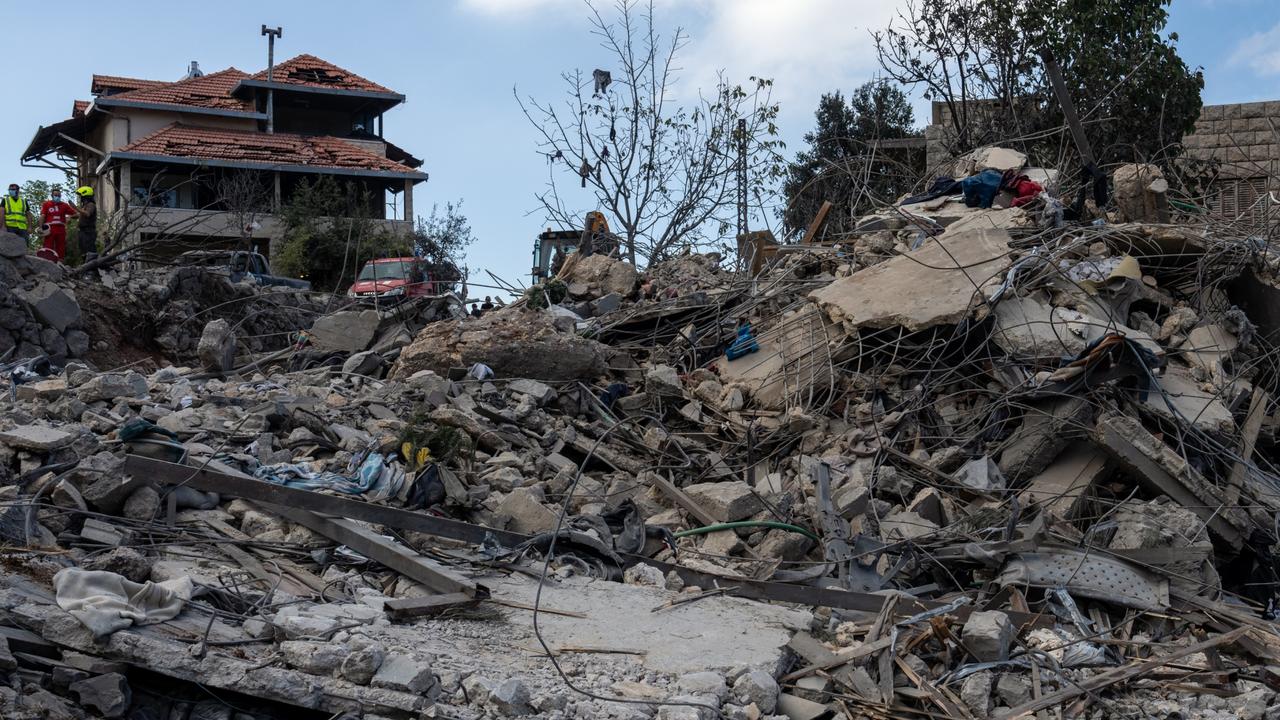
The Israel Defence Forces (IDF) say the attack on Aitou “struck a target belonging to the Hezbollah terrorist organisation”.
“The claim that Lebanese civilians were killed as a result of the strike is under review. The incident is being examined,” it said in a statement.
A spokesman for the United Nations’ High Commissioner for Human Rights has expressed “real concerns” about the incident.
“We understand it was a four-storey residential building that was struck,” said the spokesman, Jeremy Laurence.
“With these factors in mind, we have real concerns with respect to the laws of war and principles of distinction, proportion and proportionality.
“In this case, (we) would call for a prompt, independent and thorough investigation.”
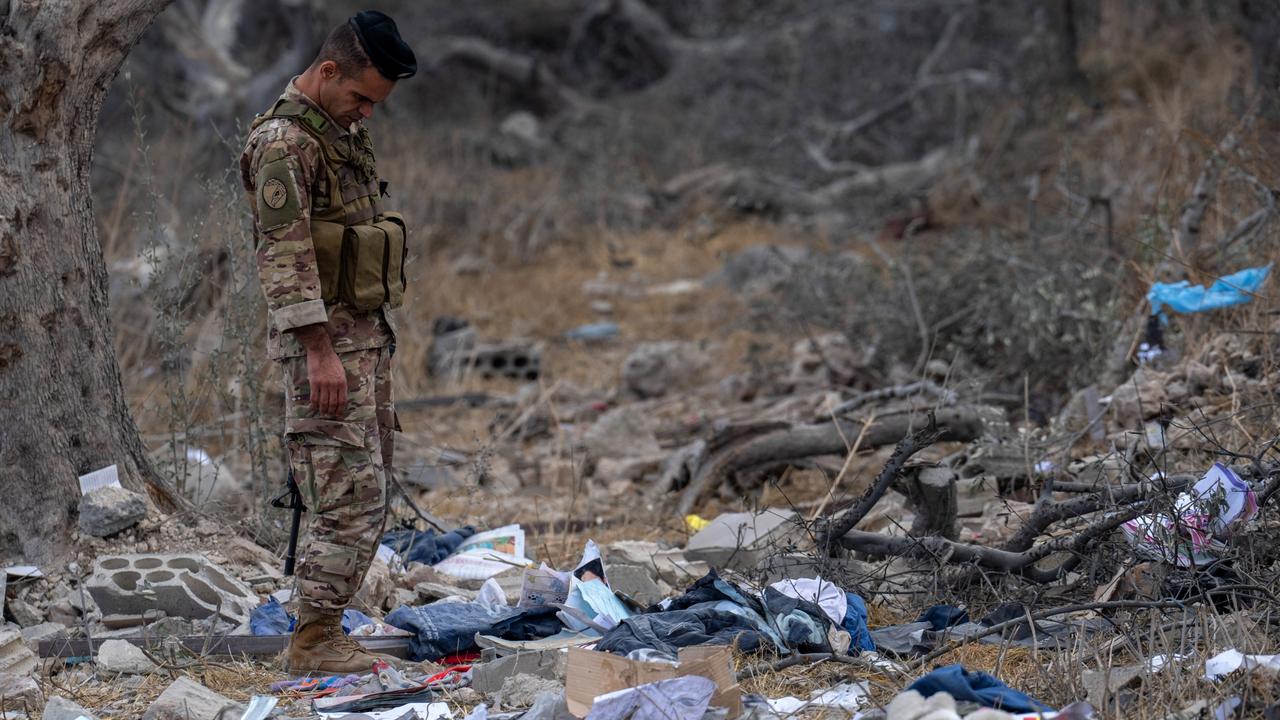
Journalist Oliver Marsden, reporting for British newspaper The Times, visited Aitou in the aftermath of the strike.
Among the rubble, he saw “children’s clothing, a teddy bear, school books and, for those who could bear to look, body parts”.
“They were innocent. Civilians,” Mr Marsden was told by Raheel, a 34-year-old woman who had moved north to escape the danger in southern Lebanon. Now she’s been displaced again.
“How can we forget this day and these innocent people? This massacre?”
Another witness, Estephan Frangieh, told The Times he thought the attack was an attempt to sow discord among the locals.
“There are rules in war,” said Mr Frangieh. “This is monstrous.”
Some locals speculated that the strike was connected to “a stranger” who had arrived in the village on the day of the attack, offering families money and aid. A building was reportedly targeted five minutes after this mysterious stranger entered it.
In a harrowing detail, Mr Marsden described the moment a rescue worker retrieved the body of a one-year-old boy from a pick-up truck.
“The child had been dead for a day by the time the Red Cross worker arrived on Tuesday, lying face down and unseen in the Chevy Silverado,” he wrote.
“In the search for survivors, and in an area of Lebanon that had not expected the war to reach it so soon, the baby’s mother was found alive and taken to hospital.
“But her lifeless child remained where he had died.”
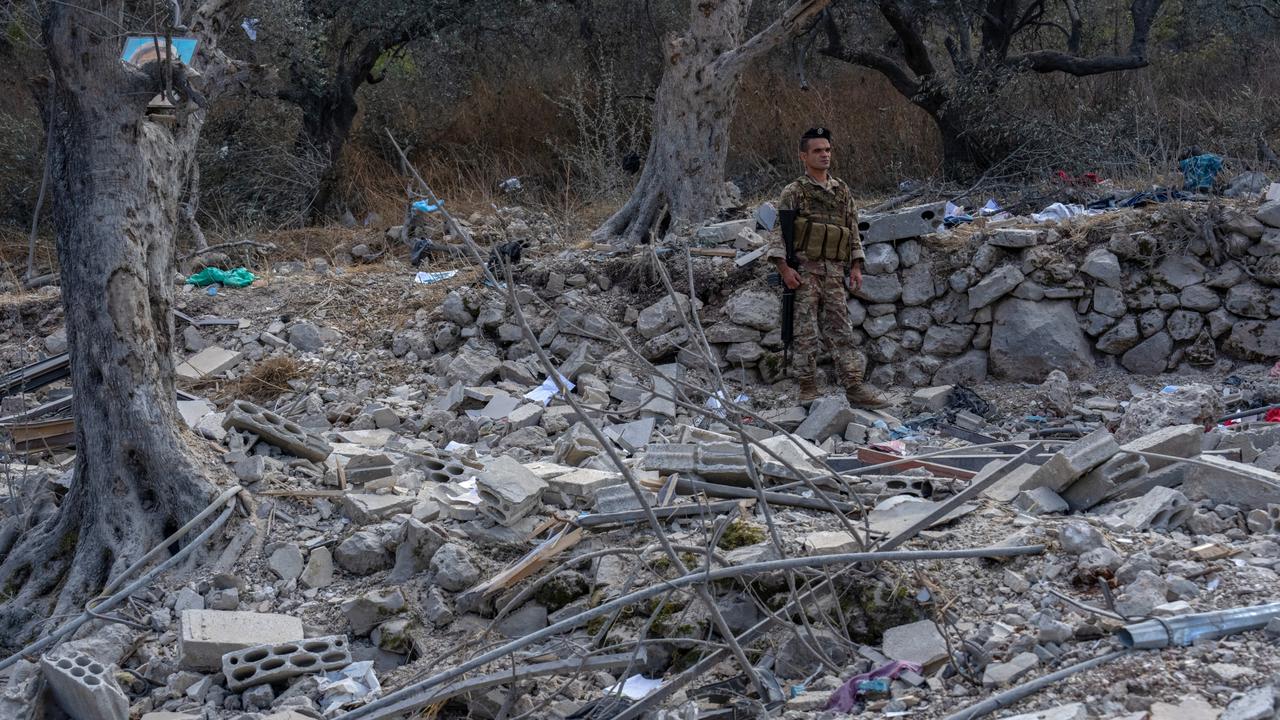
‘Deep concern’: International community applies pressure
These latest casualties come after a particularly deadly few days in the Gaza Strip, with one Israeli strike on a school in a refugee camp allegedly killing 15 children.
Against that backdrop, the United States has given Israel a month to increase the level of humanitarian aid it’s allowing into Gaza, lest it risk losing access to military equipment.
“We are writing now to underscore the US government’s deep concern over the deteriorating humanitarian situation in Gaza, and seek urgent and sustained actions by your government this month to reverse this trajectory,” the American Secretary of State Antony Blinken, and its Defence Secretary General Lloyd Austin, wrote in a joint letter to senior Israeli figures.
A spokesman for the Pentagon, Admiral John Kirby, stressed that the letter was “not meant as a threat”, but was “meant to reiterate the sense of urgency we feel” regarding the humanitarian crisis in Gaza.
Meanwhile the Prime Minister of Israel, Benjamin Netanyahu, has rejected calls for a ceasefire in Lebanon, arguing such a deal would leave Hezbollah forces too close his nation’s border.
In a call with French President Emmanuel Macron, Mr Netanyahu said he was “opposed to a unilateral ceasefire, which does not change the security situation in Lebanon, and which will only return it to the way it was”, according to a statement from his office.
Mr Netanyahu and the Israeli military have insisted there must be a buffer zone along Israel’s border with Lebanon, in which there is no presence of Hezbollah fighters.
“Prime Minister Netanyahu clarified that Israel would not agree to any arrangement that does not provide this, and which does not stop Hezbollah from rearming and regrouping,” said the statement from Mr Netanyahu’s office.
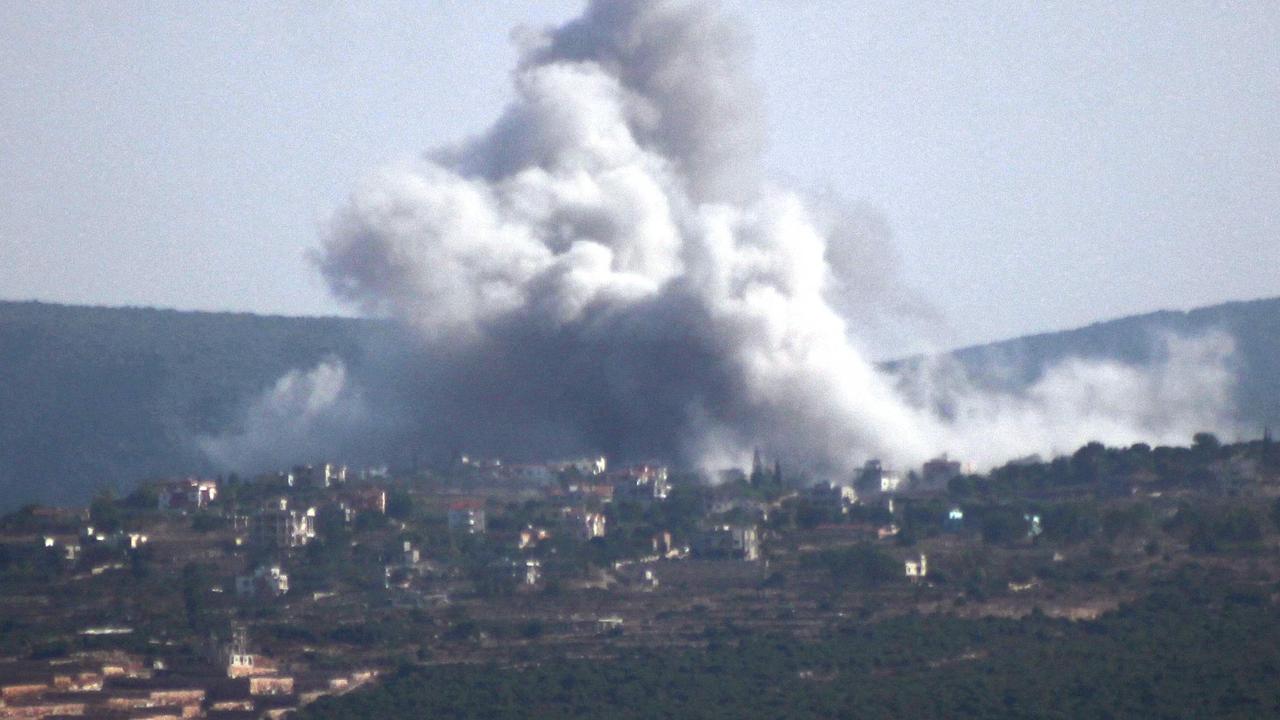
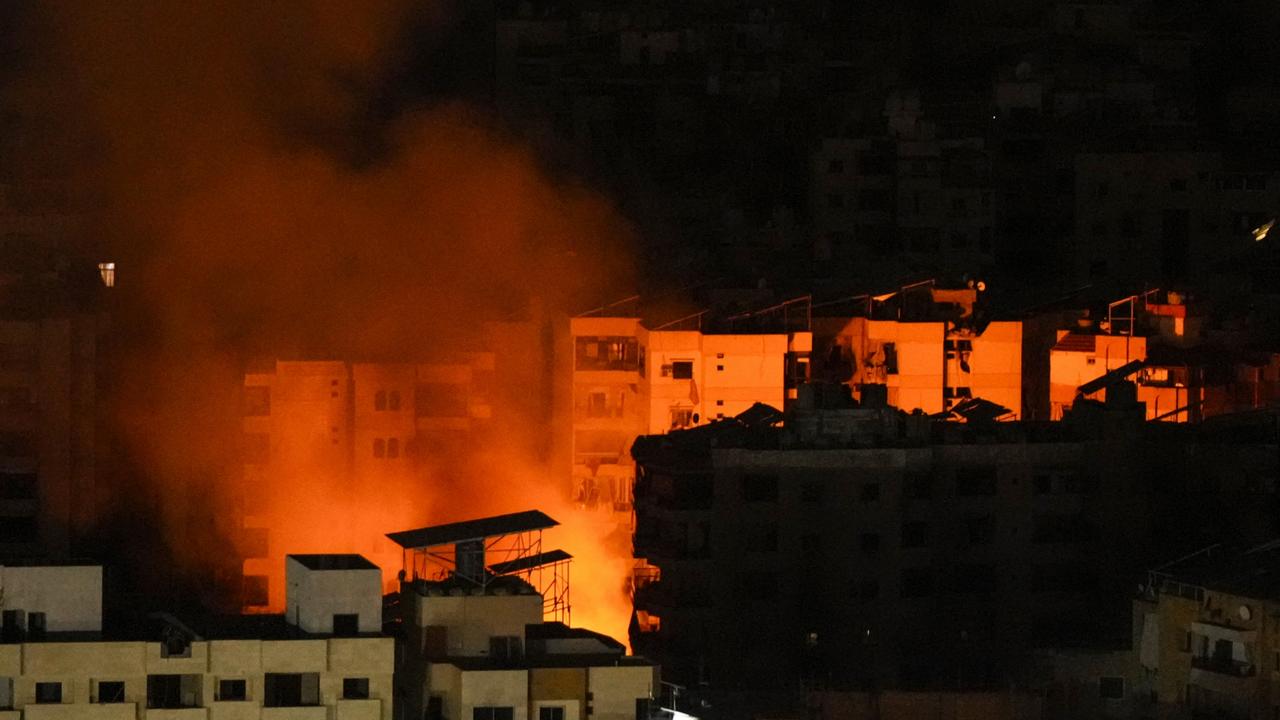
The leaders of Hezbollah are no less intransigent.
In a defiant televised speech, the terrorist group’s deputy leader Naim Qassem said the only solution was a ceasefire – but he also threatened to expand the scope of the organisation’s missile attacks on Israel.
“Since the Israeli enemy targeted all of Lebanon, we have the right from a defensive position to target any place” in Israel, Qassem claimed.
Early on Wednesday, local time, Israel’s military reported that around 50 projectiles had been fired from Lebanon at the country’s north, without any reports of casualties.
Hezbollah said it had launched “a large salvo of missiles” at the town of Safed.
Asked about the Israeli air strikes in Lebanon, specifically those that hit residential buildings in Beirut on October 10, the US voiced open criticism.
“We have made clear that we are opposed to the campaign the way we’ve seen it conducted over the past weeks,” said State Department spokesman Matthew Miller.
‘Worst restrictions we have seen’
Despite the need for food, medical supplies and shelter in hunger-ravaged Gaza, a spokesman for the UN children’s agency UNICEF has said that aid is facing the tightest restrictions since the start of Israel’s retaliatory strikes in the wake of Hamas’s attack on October 7 last year.
In that attack, Hamas militants murdered more than 1200 people, and kidnapped hundreds more. The Israeli campaign in response has killed more than 42,000.
“We see now what is probably the worst restrictions we’ve seen on humanitarian aid ever,” UNICEF spokesman James Elder said in Geneva, adding that there were “several days in the last week (in which) no commercial trucks whatsoever were allowed to come in”.
“The whole area has been reduced to ashes,” Rana Abdel Majid, a resident of northern Gaza, said of the area.
Ms Majid said entire blocks had been levelled by “the indiscriminate, merciless bombing”.
– with AFP


